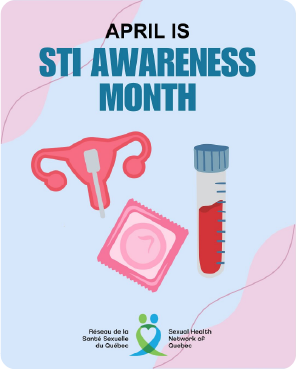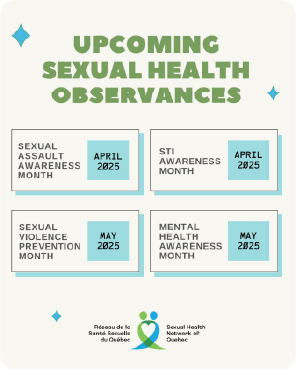Empowerment through informed
and inclusive sexual health
education and advocacy
Empowerment through informed and inclusive sexual health education and advocacy
The Sexual Health Network of Quebec works locally to ensure the delivery of thorough programs and services that promote sexual health and reproductive rights.
We support educators, community members, and students of all abilities through our resources with the goal of ensuring comprehensive and inclusive sexuality education for all.
Are you an educator?
Our sexual health classroom materials are aligned with the Culture and Citizenship in Quebec program (CCQ.)
They’re available for elementary and secondary classrooms in English at this time. Download your copy today!


